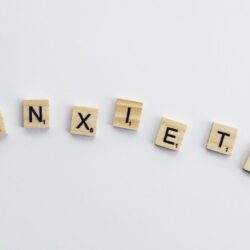Physical exercise is often associated with physical health benefits such as weight lossreducing the risk of heart disease and improving muscular strength and endurance. But did you know that exercise can also have significant mental health benefits? In this article, we’ll explore the mental health benefits of exercise and give you some practical advice on how to incorporate exercise into your daily life.
How does physical exercise improve mental health?
Exercise can have beneficial effects on mental health by releasing endorphins, natural brain chemicals that make you feelgood and happy. In fact, these endorphins can help reduce stress, anxiety and depression by improving mood and boosting self-confidence.
Exercise can also improve sleep quality, which can have a significant impact on mental health. In fact, sleep is essential for brain and body regeneration, and studies have shown that people who exercise regularly tend to sleep better than those who are sedentary. Exercise can also reduce the risk of cognitive disorders such as Alzheimer’s disease and dementia by improving overall brain health. This is because exercise can stimulate the production of growth factors in the brain, which can help strengthen neuronal connections and improve cognitive function.
How can physical exercise help reduce anxiety and depression?
Numerous studies have been carried out on the impact of physical exercise on mental health, and the results are encouraging. According to these studies, regular exercise could help reduce levels of anxiety and depression. This is because when we exercise, our bodies release endorphins, which are natural brain chemicals that give us a feeling of well-being and happiness. In addition, exercise can help reduce levels of the stress hormone cortisol, while also increasing levels of serotonin and dopamine, two brain chemicals associated with mood enhancement.
Physical exercise can also help reduce social isolation and increase social interaction, which can contribute to better mental health. Indeed, group physical activities such as fitness classes or team sports can be an excellent way of socialising and meeting new people. In fact, it can help reduce feelings of loneliness and isolation, which can often exacerbate mental health problems.
How can you incorporate exercise into your daily life?
It can be difficult to find the time and motivation to exercise, but there are many ways you can incorporate it into your daily life. You can do short exercise sessions during the day, such as stretching or breathing exercises. Or you can exercise on the move, such as walking or cycling to work. You can also incorporate exercise into your social activities, such as playing team sports or going for walks with friends.
What are the best types of exercise for improving mental health?
All types of physical exercise can be beneficial for mental health, but some are particularly effective. Aerobic exercise, such as walking, running and cycling, is known to release endorphins and improve mood. Yoga and meditation exercises can help reduce stress and anxiety by promoting relaxation and mindfulness. Finally, weight training can also be beneficial by improving strength and endurance, which can boost self-confidence.
Does weight training help to regulate mood?
Weight training can have beneficial effects on mental health. Regular weight training can help to reduce stress and anxiety by releasing endorphins, hormones that provide a feeling of well-being and pain relief. These endorphins, also known as happy hormones, can help to reduce stress levels, improve mood and reduce feelings of anxiety.
As well as reducing stress and anxiety, strength training can help improve self-esteem and self-confidence. In fact, weight training makes you feel stronger and more capable, which can have positive effects on your self-image and sense of self-worth. Weight training can also help to improve posture, which can have an impact on how others perceive a person’s confidence and self-assurance.
Building muscle to combat depression?
Finally, bodybuilding can also help combat depression by increasing levels of serotonin and dopamine, neurotransmitters involved in mood regulation. Indoor exercise can help stimulate the production of these neurotransmitters, which can help improve mood and reduce the symptoms of depression.
In conclusion, physical exercise can have significant benefits for mental health. By releasing endorphins, reducing stress and anxiety, improving mood and boosting self-confidence, exercise can contribute to better mental health. It’s important to find practical ways of incorporating exercise into your daily life and to choose the types of exercise that best suit your needs and preferences. So get moving for your mental health!
Physical activity, quality of microbiota, brain… It’s all linked!
In 2022, the French High Council for Public Health noted that the French had not yet returned to the level of physical activity they enjoyed before the period of confinement.
This phenomenon is all the more worrying given that regular physical activity, coupled with good quality sleep and diet, are three essential elements in maintaining good health and preventing chronic diseases such as cardiovascular disease, stroke, cancer, diabetes, arthritis, back pain, asthma and chronic depression.
What if the diversity of our intestinal microbiota depended on our cardiorespiratory fitness?
While we know that better cardiorespiratory fitness coincides with greater intestinal microbiota diversity, the question remains as to whether this relationship is linked to body fat percentage or to the physical activities of daily life. To answer this question, a study was conducted by an American research team, published in 2019 in Experimental Physiology. The researchers selected 37 non-metastatic breast cancer survivors whose treatment had been completed for at least a year.
It is true that cancer treatment is known to induce an increase in the percentage of body fat and a reduction in cardiorespiratory capacity. The 37 participants were invited to perform a graded exercise test to estimate their maximum cardiorespiratory fitness, their total energy expenditure was then assessed and an examination of the intestinal microbiota was carried out using faecal swabs.
Results: participants with better cardiorespiratory fitness had a significantly greater diversity of intestinal microbiota than those who were less fit. Other statistical analyses showed that cardiorespiratory fitness explained around a quarter of the variance in species richness and homogeneity, independently of the percentage of body fat.
Micronutrition: a preventive health solution!
The micro-nutritional approach aims to assess a person’s state of health through the proper functioning of the 5 key functions that enable the body to adapt to its environment: digestive interface, cellular protection, cellular communication, brain function and cardiometabolic risk (CMR).
FAQ
- How long do you have to exercise to see results in terms of mental health?
There is no single answer to this question. However, numerous studies have shown that exercise sessions of 30 to 60 minutes, three to five times a week, can have a positive effect on mental health.
- Is any form of physical exercise suitable for improving mental health?
Yes, any form of physical exercise can be beneficial to mental health. Provided it is done regularly and is adapted to your physical abilities.
- Can physical exercise replace medication for depression and anxiety?
Physical exercise can be used alongside medication to reduce the symptoms of depression and anxiety. However, it is important to consult a healthcare professional before changing your treatment.
Read more:
- https://www.ncbi.nlm.nih.gov/pmc/articles/PMC8656946/
- https://www.ncbi.nlm.nih.gov/pmc/articles/PMC9478583/
- https://www.psychiatrypodcast.com/psychiatry-psychotherapy-podcast/episode-179-exercise-amp-mental-health-2023-update







